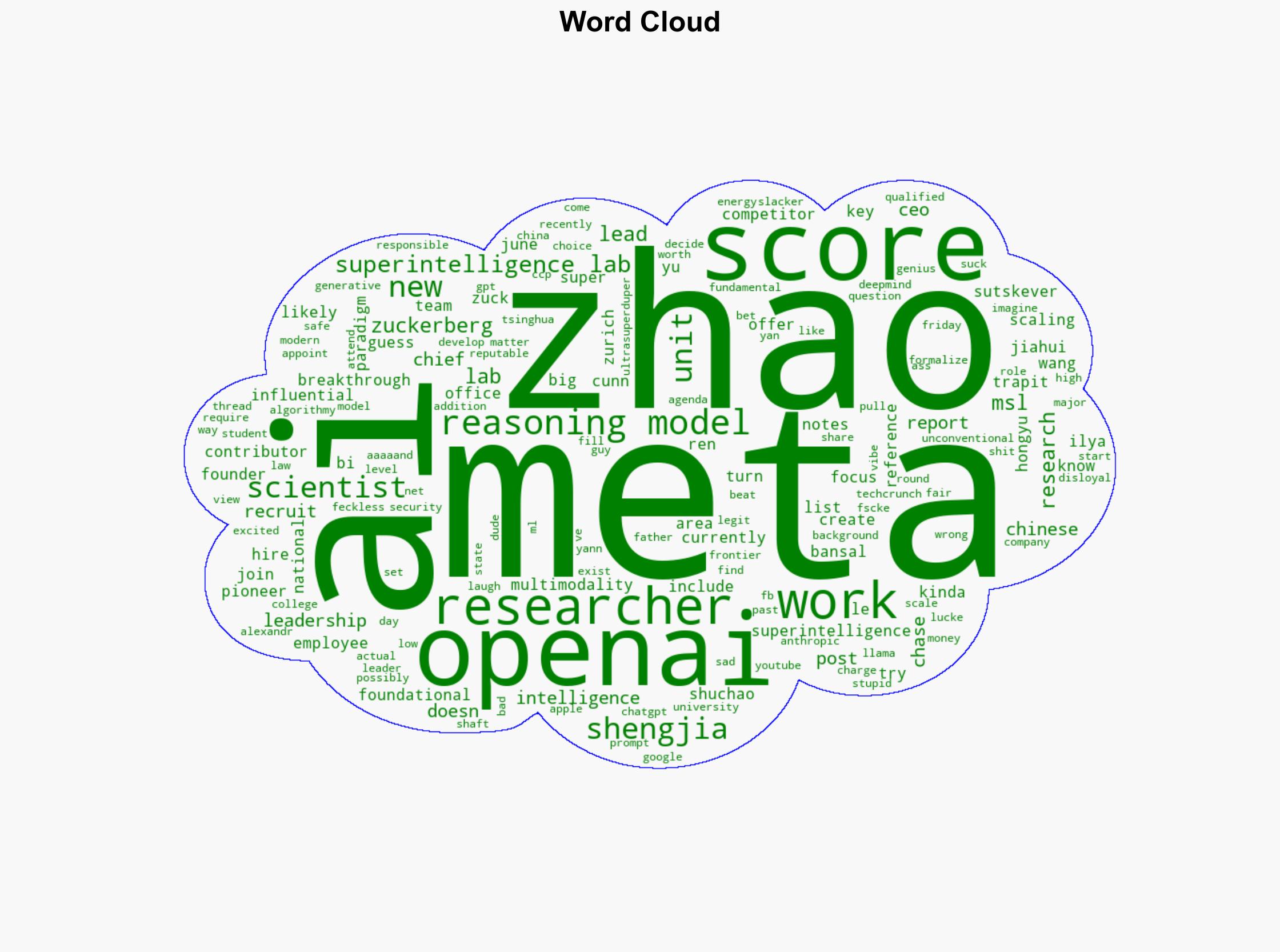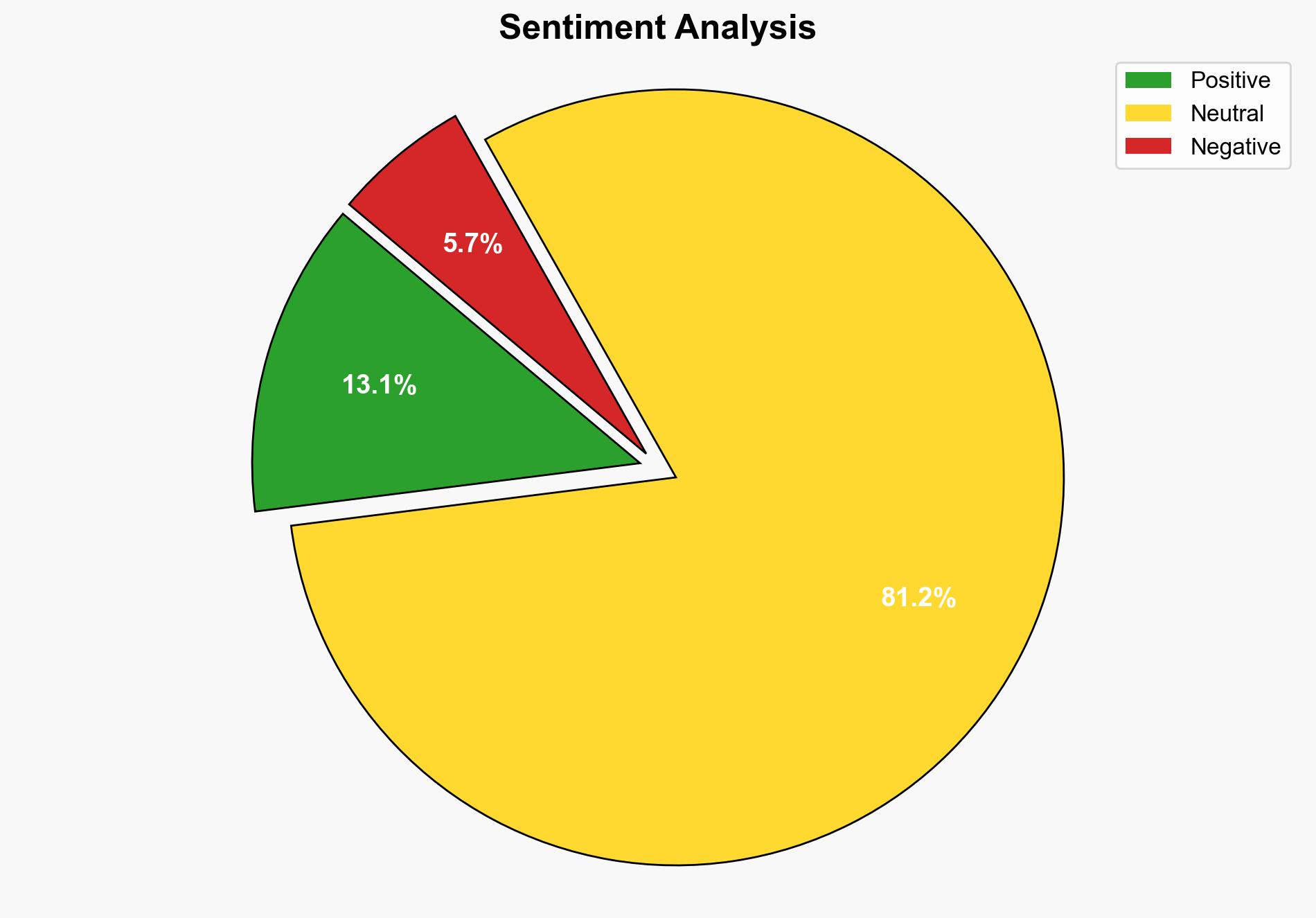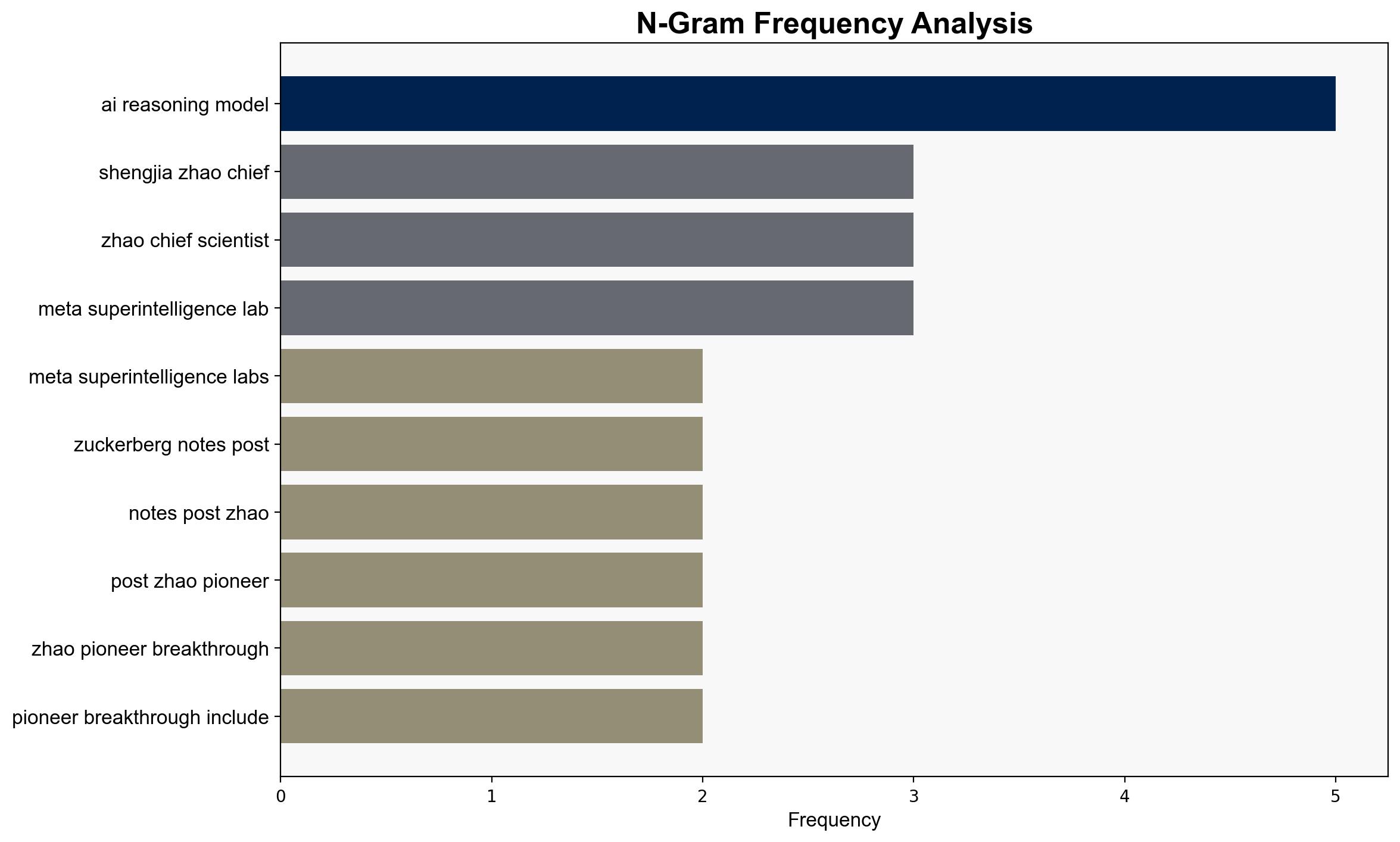Meta Names Shengjia Zhao As Chief Scientist of AI Superintelligence Unit – Slashdot.org
Published on: 2025-07-26
Intelligence Report: Meta Names Shengjia Zhao As Chief Scientist of AI Superintelligence Unit – Slashdot.org
1. BLUF (Bottom Line Up Front)
Meta’s appointment of Shengjia Zhao as Chief Scientist of its AI Superintelligence Unit suggests a strategic pivot towards advancing AI capabilities, potentially positioning Meta as a leader in AI reasoning models. The most supported hypothesis is that Meta aims to leverage Zhao’s expertise to develop competitive AI models. Confidence level: Moderate. Recommended action: Monitor Meta’s AI developments and Zhao’s influence on the research agenda to assess potential impacts on the AI industry and competitive landscape.
2. Competing Hypotheses
1. **Hypothesis A**: Meta is strategically positioning itself to become a leader in AI superintelligence by recruiting top talent from leading AI research institutions, including OpenAI, to develop advanced AI reasoning models.
2. **Hypothesis B**: Meta’s recruitment of Shengjia Zhao and other researchers is primarily a defensive move to prevent talent acquisition by competitors and to maintain its relevance in the rapidly evolving AI landscape.
Using ACH 2.0, Hypothesis A is better supported due to Zhao’s specific expertise in AI reasoning models and Meta’s explicit focus on developing a superintelligence lab. The recruitment of high-level researchers from competitors further supports this strategic intent.
3. Key Assumptions and Red Flags
– **Assumptions**: Meta has the necessary resources and infrastructure to support advanced AI research. Zhao’s leadership will effectively translate into competitive AI advancements.
– **Red Flags**: Potential over-reliance on Zhao’s expertise without considering broader team dynamics. The possibility of internal resistance or cultural misalignment within Meta’s existing AI teams.
– **Blind Spots**: Limited information on Meta’s long-term strategic goals for the AI Superintelligence Unit beyond Zhao’s appointment.
4. Implications and Strategic Risks
– **Economic**: Successful development of AI superintelligence could disrupt existing AI markets and create new economic opportunities for Meta.
– **Cyber**: Advanced AI models may introduce new cybersecurity vulnerabilities if not properly managed.
– **Geopolitical**: Meta’s advancements in AI could influence global AI policy discussions and raise concerns about AI ethics and regulation.
– **Psychological**: Public perception of AI superintelligence may be influenced by Meta’s developments, affecting user trust and acceptance.
5. Recommendations and Outlook
- Monitor Meta’s AI research outputs and Zhao’s influence on the unit’s direction.
- Engage with industry stakeholders to understand potential regulatory changes in AI development.
- Scenario-based projections:
- Best: Meta successfully develops competitive AI models, enhancing its market position.
- Worst: Internal challenges and external pressures hinder Meta’s AI advancements.
- Most Likely: Gradual progress with incremental advancements in AI reasoning models.
6. Key Individuals and Entities
– Shengjia Zhao
– Alexandr Wang
– Mark Zuckerberg
– Jiahui Yu
– Shuchao Bi
– Hongyu Ren
– Trapit Bansal
7. Thematic Tags
national security threats, cybersecurity, AI development, competitive intelligence




